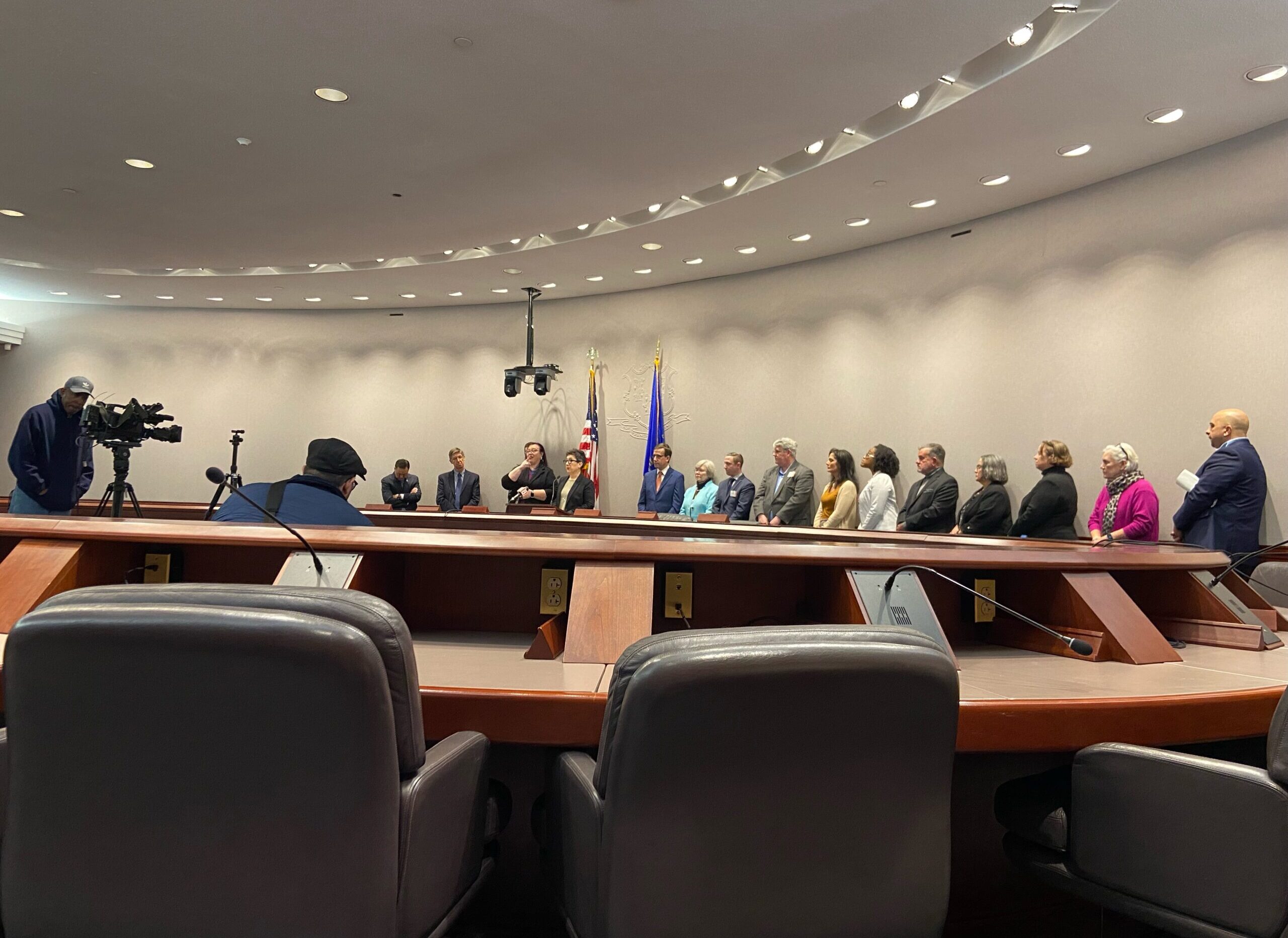 At a press conference on February 23, 2024 at the Legislative Office Building, Loretta Jay spoke about the parity problem. Other speakers included Connecticut Comptroller Sean Scanlon, Attorney General William Tong, Senator Lesser, Representative Susan Johnson, the President of the Connecticut Psychiatric Society Dr. Tichianaa Armahand, and representatives of the National Alliance on Mental Illness – CT and Mental Health Connecticut. See a video clip of Loretta speaking.
At a press conference on February 23, 2024 at the Legislative Office Building, Loretta Jay spoke about the parity problem. Other speakers included Connecticut Comptroller Sean Scanlon, Attorney General William Tong, Senator Lesser, Representative Susan Johnson, the President of the Connecticut Psychiatric Society Dr. Tichianaa Armahand, and representatives of the National Alliance on Mental Illness – CT and Mental Health Connecticut. See a video clip of Loretta speaking.
Following are Loretta Jay’s remarks.
Recently, I experienced the parity problem. I was trying to get pre-authorization for an out of network therapist. That is because in Fairfield County there are not so many in-network therapists. To get any reimbursement, our family’s healthcare plan required that an out-of-network therapist contact them directly with a service code – BEFORE they even had any contact with me. The insurance company refused a code from my regular doctor; or from me; or on a claim form. So many problems here:
- First of all, a provider cannot determine what the service code would be prior to having contact with the patient; this would be unethical, fraudulent and against good practice.
- Other medical providers do not have such a prerequisite.
- And, by definition, out-of-network providers do not deal with insurance companies. That is what makes them out of network. Therefore, this requirement creates an unrealistic demand.
I’m fortunate that I was able to manage these roadblocks. But others are not so lucky. For instance, I am a special education advocate and I work with youth who have behavioral health challenges. Repeatedly, I’ve seen how insurance companies make parents jump through procedural hoops when they try to get their kids medically necessary mental health care. While dealing with their child in crisis, they must also navigate burdensome expectations and inconsistent messaging. This delays or prevents access to care.
To illustrate, when one of my clients needed residential treatment for their daughter, their insurance company required that they pay a $1,000 “admissions fee” to the program. This was in addition to their co-pay and co-insurance. Plus, it was not applied toward their annual deductible. Three months later, during the same calendar year, the same teen had to re-enter the same program. Again, the insurance required another $1,000 admission fee. And again, it was not applied toward their deductible, and not considered a part of their co-insurance. These costs created unnecessary hardship for this family that was already struggling to pay their bills.
Treating mental health differently than other medical services hurts people. This discrimination exhausts families financially and emotionally. We need enforcement of the existing parity laws, so insurance coverage is fair, and our community is protected and cared for. Thank you.
